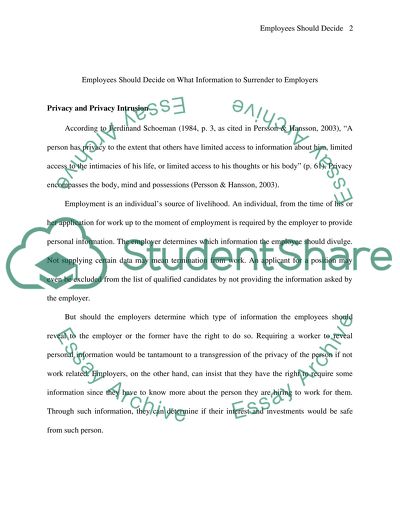Cite this document
(“Employees should decide on what information to surrender to employers Essay”, n.d.)
Retrieved from https://studentshare.org/human-resources/1411260-employees-should-decide-on-what-information-to-surrender-to-employers
Retrieved from https://studentshare.org/human-resources/1411260-employees-should-decide-on-what-information-to-surrender-to-employers
(Employees Should Decide on What Information to Surrender to Employers Essay)
https://studentshare.org/human-resources/1411260-employees-should-decide-on-what-information-to-surrender-to-employers.
https://studentshare.org/human-resources/1411260-employees-should-decide-on-what-information-to-surrender-to-employers.
“Employees Should Decide on What Information to Surrender to Employers Essay”, n.d. https://studentshare.org/human-resources/1411260-employees-should-decide-on-what-information-to-surrender-to-employers.


